The Musicians
In his fourth essay on jazz for mnartists.org and the Walker, Jeremy Walker gives a free-wheeling rumination on what makes a truly "great musician" - from Beethoven, Thelonious Monk and Ornette Coleman to the legends playing right here in the Twin Cities.
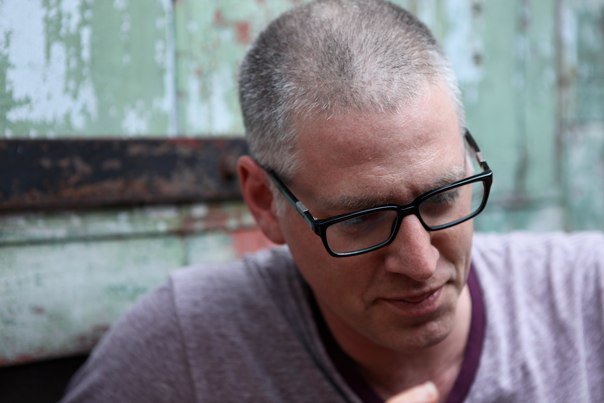
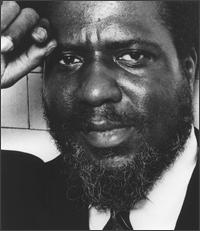
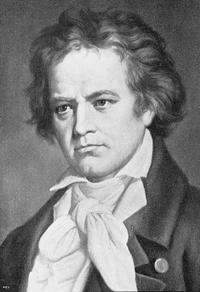
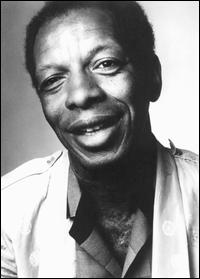
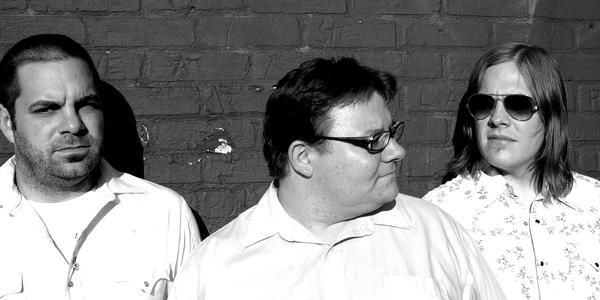
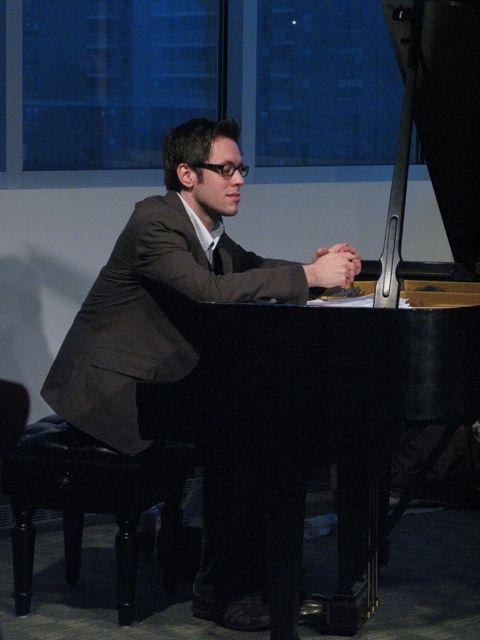
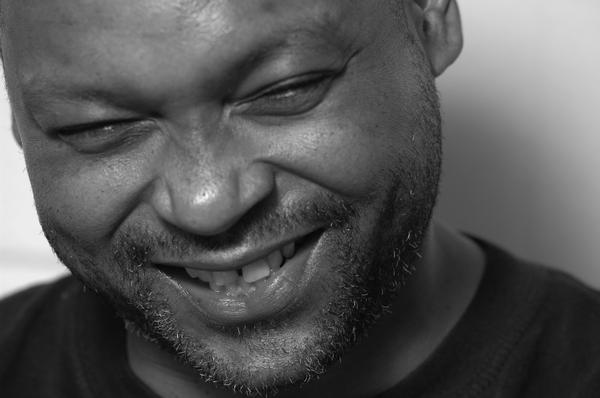
ORNETTE COLEMAN CALLED WHAT HE PLAYED “FEELINGS MUSIC” — I think that is probably the best definition of music I have heard. And if music is about feelings, human emotion, then technique and knowledge should both be at the service of the most accurate expressions of emotions. This definition distills all great music down to a question of spiritual intent, from the intense mastery of Beethoven and Charlie Parker to the raw, clear expression of Robert Johnson, or the best of Johnny Cash.
A certain kind of technical virtuosity is easily recognizable — speed, power, and proficiency applied across a recognized vocabulary. It is trickier to appreciate when the vocabulary being used is new. For instance, a lot people mistook Thelonious Monk‘s distinctive style of piano playing for a lack of proficiency. His touch, rhythmic feel, note choices, and singular use of space were unfamiliar to listeners at the time, and easy to pass off as lack of pianistic command — he couldn’t do on the piano what Horowitz could. Of course, Horowitz couldn’t begin to do what Monk could, either. Monk possessed a technical mastery that was wholly formed to the service of his music; in that way, his accomplishment parallels the pioneering technical achievements of Beethoven. Because Beethoven, as composer, is so much a part of our musical canon, it is easy to overlook the fact that his musical innovations often came from his unique, physical skills and proclivities at the piano — same as Monk, same as Ellington. Seen from this vantage point, the highest level of virtuosity is singularity. Beethoven mastered Beethoven, in other words. That is the artistic black box, and that’s also why we can’t quite understand what goes into the hearing and playing of artists such as Monk or Beethoven, or Louis Armstrong, or whoever. Their virtuosity amounts to a combination of intellect, experience, hard work, physiology, and limitation. And of course, intent. Intent!
Things get a bit slippery here. Defining intent, or determining an artist’s sincerity, is sort of like dancing about architecture, as the saying goes. It should be noted, too, that while genuine singularity may sometimes go unrecognized and dismissed, it’s also common practice to pass off incompetence as personal statement, or sheer lack of technique as some kind of unique innovation. There is always an endless supply of “artists” who hide behind false sincerity or hype and marketing to cover up bullshit or to oversell garbage. As H.L. Menken said, “No one ever went broke underestimating the taste of the American public.” Or, to paraphrase Solomon himself, I have seen kings walk while fools ride.
As hard as it may be to ascertain another’s motivations, since the wide range of technical proficiencies can’t answer for what makes for a great musician, the question nonetheless always comes down to one of intent, of spiritual integrity. Sometimes, thinking about it this way, I feel a little bit like Linus in his quest to see the Great Pumpkin — like I’m looking for the most artistically “sincere” in the pumpkin patch. But how do you find that?
These questions are too metaphysical for me, actually. In all honesty, the only answer I can offer is: I don’t know. Again, we are in the black box. We know more or less what goes into the box, and we can hear what comes out, but we don’t really understand what happens in the box.
An increasing homogenization of American pop culture, the academizing of “art,” and the relentless hype surrounding all things sold — whether the product is an education or lousy music — have removed the emotion from most music as far as I’m concerned. Much of what I hear leaves me cold. Such recordings have technology; they have volume; they have hype — but so many of them are all pose, just flash and cash. And, for jazz, as much I think students should study it, as much as I feel it belongs in conservatories for its artistic merit, it seems to me, even here, we are turning out more and more technically amazing players with less to say. It’s “stunt jazz” (a phrase coined by the restless and swinging pianist Bryan Nichols), executed at higher speeds and higher volumes; more often than not, this is what I’m hearing in New York and elsewhere. There is little room for the individual in this sort of jazz playing, because that individual has to first stand up to the pressure to conform to the influence of such patterned virtuosity. I believe if Lester Young or Billie Holiday, or even Monk, walked into a jam session today, the “burning” star soloists wouldn’t give him or her half a chorus. There is little room for such individuality in this modern construct, yet there is an overabundance of instrumentalists out there now who can play more notes — louder, faster, and over more complex harmonies and meters — than Starbucks or Guitar Center could ever employ.
Still, some things are perennially true. Bad music is bad, and good music is good and rare and wonderful. Good music requires vocabulary, technique, and intellect all serving authentic feelings. The listener doesn’t have to get in the black box with the artist to see how it all happens. The listener … well, listens. So, now I am going to talk about a few of the readily accessible artists in the Twin Cities you could check out — what follows will, by no means, be a complete list (as if that is possible), nor will it be an objective accounting. These are my opinions. Let’s all relax and be willing to disagree and keep our ears and minds open, OK?
______________________________________________________
Some things are perennially true: Bad music is bad, and good music is good and rare and wonderful. Good music requires vocabulary, technique, and intellect all serving authentic feelings.
______________________________________________________
Since this essays series is about Twin Cities jazz, in particular, I will confine my list to players working locally with regularity, but I hate making a distinction between local and national players. All musicians are local, although all too often just changing zip codes changes perceptions of an artist, at least in marketing terms. But since I don’t have unlimited space to talk about everyone, I’ll start with a list of performers around here who are absolutely worth the time to check out, with a few noted in more detail later.
So, here is the list; look for these guys on schedules around town:
Bryan Nichols (piano)
Chris Thomson (saxophones)
Pete Whitman (saxophones)
James Buckley (bass)
Reynold Philipsic (guitar)
Phil Hey (drums)
Debbie Duncan (vocals)
Chris Lomheim (piano)
Gordy Johnson (bass)
Benny Weinbeck (piano)
Chris Bates (bass)
Jay Epstein (drums)
Brandon Wozniak (sax)
Park Evans (guitar)
Bruce Henry (vocals)
And a few bands to watch out for: The Enormous Quartet, Sidewalk Cafe (gypsy jazz), the X-Tet (modern large ensemble), the Atlantis Quartet
While it’s in no way an exhaustive tally, those listed above offer a strong representation of the Twin Cities scene and they’re all people with whom I have direct experience. Now, I’ll single out a few musicians who have helped define the local scene; these are musicians distinguished for their longevity, influence, and integrity, whose work should really be experienced directly and often.
First, take special note of the band Fat Kid Wednesdays (FKW) and its members, JT Bates (drums), Adam Linz (bass), and Mike Lewis (saxophones). There are bios all over the web about these guys, and about all the bands they’ve each played in. All three have cast wide shadows as individual artists, but it is the band itself I want to call your attention to here. They have been playing together in Fat Kid Wednesdays for over ten years — and that alone is enough to set them apart in jazz, a music dominated by one-off assemblages based on available jobs. Jazz, like war, is often a question of stamina, and FKW’s continued presence over a long time has a lot to do with their influence. FKW has, for years, held court at the Clown Lounge and earned a (sometimes overly) committed following; FKW tends toward the so-called avant garde, emphasizing free structures (since the “avant garde” is now well over 40 years old, I hesitate to label it that way). FKW plays jazz music with abandon and commitment, and at their best, the band lives up to the dictum established earlier that the best jazz is “feelings music.”
Even though they’re known for their free jazz, my favorite FKW performances have been on standards: their long-practiced ability to communicate with one another while staying on form playing a Monk tune, or on “Skylark,” have been the moments in which, for me, the band has presented music with the most accuracy, feeling, and swing. They do other stuff that, for my ear, doesn’t connect as strongly, but that is an opinion, not a judgment. To be frank, I am skeptical of zealotry, and JT, Adam, and Mike are all musically and personally compelling enough to engender a kind of slavish devotion in some of their followers. But that also speaks to their success. These guys aren’t at all the types who’re looking for disciples, but maybe with that kind of charisma, it is just inevitable. The success of FKW represents one avenue by which jazz can regain some of its prestige and following. The musicians in the band have remained true to themselves, the music, and each other; more jazz musicians need to commit to each other and to a group sound. FKW has done so — and it is great to hear. So, go hear them. This band deserves many more listeners.
I have to talk about Anthony Cox, too: this man just plays music at a higher level. He swings and grooves harder, hears deeper, aims higher than just about anybody I know. And he has played with everyone: Stan Getz, Sam Rivers, Joe Lovano, John Scofield, and so many more. His music will confound you, challenge you, and always move you. Playing with him is at once hair-raising and grounding — he makes you better than you thought you could be.
When I was in high school, I checked out Joe Lovano’s Sounds of Joy record with Anthony and Ed Blackwell; it just knocked me out, and still does. So, I have known about him for a long time. When I ran my club, Brilliant Corners, and was booking musicians every day, Anthony Cox was the one guy I was scared to talk to. I am shy anyway, so talking to new people every day doesn’t come particularly naturally; but with Anthony, my reticence had to do more with the weight of his music. So, even though I was booking musicians all the time, I had never talked to him. But I was playing a gig one night and walked into this club, and there was Anthony, as part of the band. Because I was really intimidated, I kept to myself. He told me later he thought I was arrogant, or mad at him, or something. Of course, after playing with him that night, I discovered his warmth as a person and learned even more about his musical depth. He has helped me in so many ways since then. Man, we all owe him so much. And listeners owe him their ears. Find him, and listen.
Then, there is Dave Karr. He is beyond category. For years, here and elsewhere, he has been a model of swing and invention, beauty and depth — everyone agrees. Dave was born in New York and haunted clubs there, listening to Charlie Parker, Sonny Rollins — all of the greats. He is one of the greats. He plays jazz like a native. The vocabulary of the saxophone sounds as natural in his playing as talking. He swings so hard, and his ideas are so clear. His sound is warm and compelling, from a whisper to a roar. He never fails to play something profound and direct, and he puts you right in the room with everything jazz can do — feeling, rhythmic perfection, communication, harmonic mastery. His music is simply transcendent. And he is the warmest, most soulful guy you could meet — just talking to him is an authentic jazz moment.
I have two Dave Karr stories: when I was 16, I sat in to play with Debbie Duncan at the old Dakota; she was so sweet to let me, this totally green kid, play. Dave Karr was on the gig, too. After I played, he told me I sounded good and gave me some tips on practicing. He probably doesn’t even remember — but I never forgot. That kind of openness can keep a young musician going for years.
The second Dave story comes years later: I was in process of opening my club, and I was talking one day to Wynton Marsalis about the idea, how it was going. Wynton told me he would help in any way he could, provided I booked Dave Karr. Apparently, Wynton had sat in with Dave the previous night at the Dakota; (I still regret missing that.) Wynton’s reaction to hearing Dave play was to go back to his own room and practice. And that is Dave Karr. He makes us all want to practice. Go hear him — all the time, every time.
JAZZ MUSICIANS ARE COMMUNITY MUSICIANS. Almost all of us are warm people, open and ready to talk to listeners. We play in inexpensive, small spots. We are happy to have an audience and almost always ready to share in a communal musical moment with just about anybody. I am often told that jazz is obscure and intimidating; I have to admit that confuses me. When I think about the remoteness of so much of what is in our culture — our celebrity-addled, mass consumerism culture — that is what feels obscure to me. Jazz is about inclusion; that invitation is the beating heart of the form, and therefore a big part of any jazz musician’s nature. I hope I’ll see you out there. These days, it is easy to find out what is happening: Check out jazzpolice.com for articles and features on musicians and gigs, and be sure to follow Pamela Espeland’s excellent blog, Bebopified. Pamela is a curious and often insightful writer, and she selflessly maintains a comprehensive schedule of local gigs.
______________________________________________________
About the author: Jeremy Walker is a composer/pianist based in New York. He has performed with Matt Wilson, Vincent Gardner, Ted Nash, Anthony Cox and other notable musicians. He was the owner of the now defunct club, Brilliant Corners, and is the Artistic Director for Jazz is NOW! in Minneapolis. Walker currently leads two bands, The Bootet in New York and Small City Trio in Minneapolis; Small City Trio just released their first album, a collection of original songs by Walker called Pumpkins’ Reunion, available digitally on iTunes.